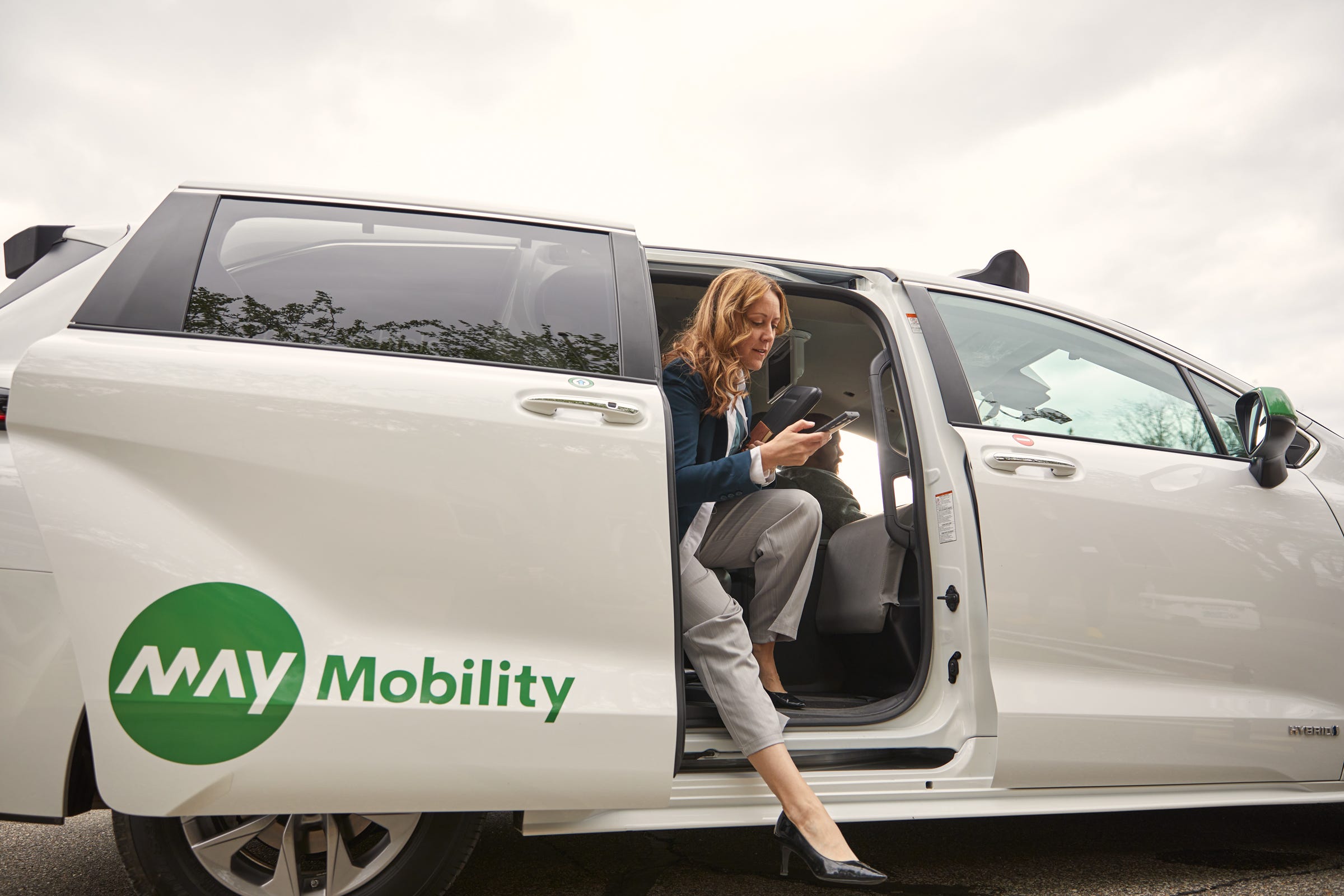Self-Driving Vehicle Company Gets $105M Funding Boost
May Mobility says the funding will help accelerate advancement and commercialization of its AV technology and services

Michigan-based autonomous vehicle (AV) start-up May Mobility has confirmed it has raised another $105 million after it closed a series D funding round.
It brings the money attracted by the Ann Arbor company to date to the $300 million mark, with the latest wave of investors led by Japanese telecommunications giant NTT.
Among other recognizable names that injected capital are Toyota Ventures, BMW i Ventures and Asia’s largest insurer, Aioi Nissay Dowa. These follow in the path of Toyota Motor Corporation and SPARX Group, who led the series B and series C rounds.
_(1).png?width=NaN&auto=webp&quality=80&disable=upscale)
Credit: May Mobility
A statement from May Mobility said the latest funding will be used “to accelerate the advancement and commercialization of its AV technology and services in the United States, Canada and Japan.” It’s hoped the scaling of operations will pave a path for the company to reach profitability.
One particularly interesting element of the investment is that it sees NTT Group acquire the exclusive rights to distribute May Mobility’s proprietary Multi-Policy Decision Making (MPDM) technology throughout Japan. MPDM differs from other systems by continually running real-time simulations, which, according to May Mobility, makes it better at handling unexpected scenarios.
The Japanese expansion will see the company work with Toyota and NTT to develop an autonomous driving ecosystem there. Toyota is already a major strategic partner of May Mobility, which is applying its autonomous tech to the Sienna Autono-MaaS minivan for American deployments. In Japan, May Mobility’s kit will be fitted across a variety of different vehicle platforms.

Credit: May Mobility
The company’s good news comes at a time when other AV firms are finding the going tough. General Motors’ Cruise, in particular, has suffered a long list of setbacks, losing its permit to deploy self-driving taxis in San Francisco, suspending operations nationally across the US and having to pause production of its purpose-built Origin AV.
In contrast, May Mobility says its strategy of incorporating AVs into existing transit systems and doing deals with cities, transit agencies, municipalities and government agencies, offers less risk and greater opportunity than the routes being taken by rivals.
By adopting a “capital-efficient” approach – deploying a handful of vehicles at a time, in geofenced areas, rather than hundreds of taxis – May Mobility believes it can achieve profitability faster.
“Our success in this fundraising is a strong validation of May’s proven business model and provides the fuel and momentum to realize our next phase of growth,” said Edwin Olson, CEO and co-founder.
The company has had a fruitful run over the past 12 months, announcing a number of new deployments.
These included a retirement community in Sun City, Arizona; a deal to assist locals with disabilities in Detroit, Michigan; and a service to take residents to medical appointments in Martinez in the Bay Area, California.
In September, it confirmed that its vehicles were on track to go fully driverless by the end of the year.
Like what you've read? For more stories like this on self-driving cars and emerging technologies, sign up for our free daily email newsletter to stay updated!
About the Author
You May Also Like








